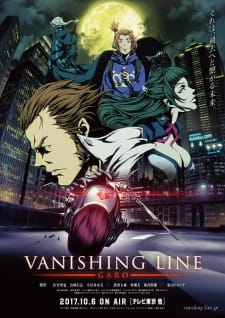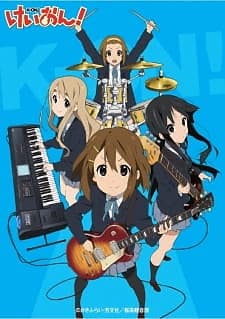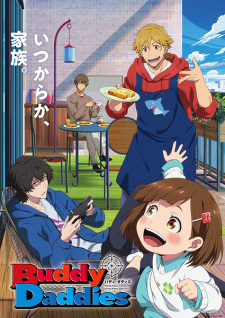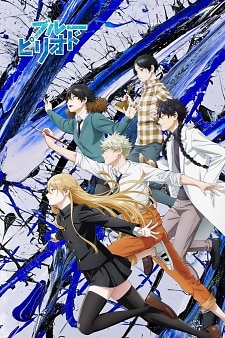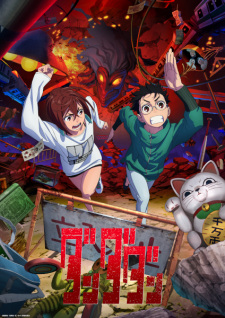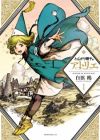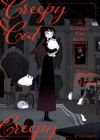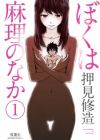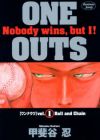Uncertain Audience
Anime
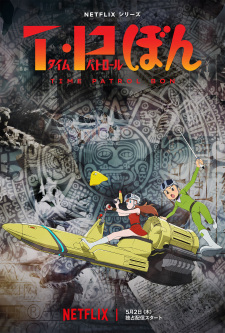
ONA, 2024,
12 eps
Me:-
Author:-
On Netflix there are two seasons of T P Bon. It is the story of two kids (actually the protagonists change from one season to another, or rather the female counterpart changes, but it doesn't matter) who travel through time to solve intricate situations. The setting is clearly that of an anime for children or very young kids, the character design reminds Doraemon and among other things even the time travel seems to have a vaguely didactic setting, in short there is the subtext of teaching how famous historical events happened.
But the animation studio decided to fill it with blood, as if it were Attack on Titan. Obviously It's Seem Innocent Enought, but in the battle scenes there is no skimping on violence to the point that Netflix has classified it as recommended for viewing by those over 16. To whom, however, in my opinion it will appear too naive and quite childish. Maybe the Japanese want to wean their children from a young age?
But the animation studio decided to fill it with blood, as if it were Attack on Titan. Obviously It's Seem Innocent Enought, but in the battle scenes there is no skimping on violence to the point that Netflix has classified it as recommended for viewing by those over 16. To whom, however, in my opinion it will appear too naive and quite childish. Maybe the Japanese want to wean their children from a young age?
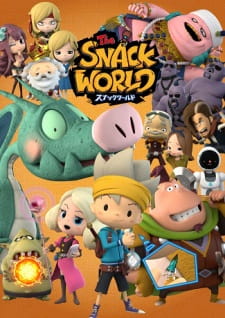
TV, 2017,
50 eps
Me:-
Author:-
Despite the child-friendly appearance, the game is rated T for Teen and the dialogue is loaded with innuendos and jokes not meant for kids. That said, in Japan the franchise is aimed at kids.
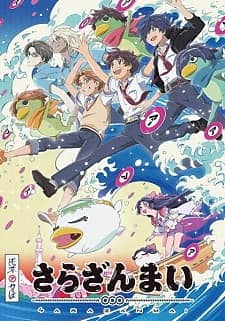
TV, 2019,
11 eps
Me:-
Author:-
Is Appeal Toward the Fujoshi Who Enjoy Mythological Creatures or It's Aimed at Lesbian Peoples? The Answer Is Both, Granted some Suggestive Scenes could let Away any Mythological Enthusiast that Would Except Mild Nudity Scenes.
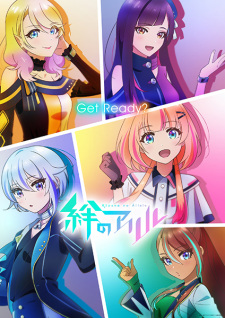
TV, 2023,
12 eps
Me:-
Author:-
The work is aimed at Kizuna AI fans. However, Kizuna AI herself doesn't appear in the present story. And while Kizuna AI as a Virtual YouTuber is known for a variety of content, mainly for Let's Play, the series exclusively focuses on Idol Singer content with Free Talk streams all being pushed aside. And Miracle's own growth as an idol isn't really shown on screen, with the series spending time on personal insecurities and Homoerotic Subtext that don't correlate with the featured music videos. This resulted in trying to appeal to three demographics and not doing much for any of them.
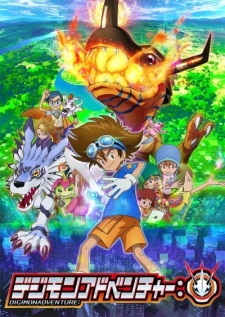
TV, 2020,
67 eps
Me:-
Author:-
This series was supposed to appeal to a younger audience, yet it is a reboot of the original Digimon Adventure filled with many references to the original series. Yet still, the series' nature as an Actionized Adaptation alienated older fans, who liked Adventure for its character focus. The fact this series came after Digimon Adventure tri. and Digimon Adventure: Last Evolution Kizuna also doesn't help since by the time this series came, fans were pretty much tired of all the nostalgia pandering with the reboot being seen as just another attempt at this.
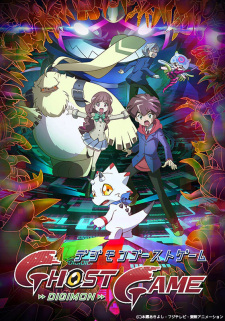
TV, 2021,
67 eps
Me:-
Author:-
Part of its mixed reception is caused by the show's uncertainty between the Monster of the Week format and a more serialized storytelling (as made notable on They Wasted a Perfectly Good Plot above). It does not help that Word of God revealed that the show was made to appeal to "iPad kids," as in a very young audience raised on quick self-gratification like Instagram and TikTok, and thus would get tired of long stories. See also What Do You Mean, It's for Kids? down this page for the additional confusion.
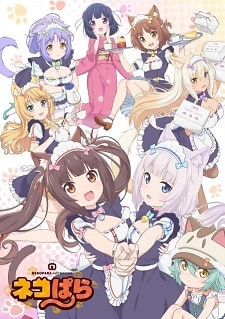
TV, 2020,
12 eps
Me:-
Author:-
The anime adaptation runs into this problem, as it was kneecapped by not being able to figure out if it wanted to appeal to a younger or an older audience. The anime is a slice-of-life spinoff revolving around a Canon Foreigner that downplays the games' Harem Genre elements, supposedly so series creator Sayori could watch it with her children. However, the anime also requires heavy knowledge of the visual novels, something that kids will not be able to have since they are H-games (and even the non-eroge version isn't exactly child-friendly, having been released on the Nintendo Switch with an M rating ), and while it doesn't have any sex scenes, implicit or not, like the original games, it still contains many examples of family-unfriendly content in the form of blatant Male Gaze and barely-disguised sexual innuendo. As a result, it flew under the radar with younger audiences due to the nature of the franchise it was adapting, and the adult audience of the visual novels found it to be much too saccharine and juvenile for their tastes. The anime became the lowest-selling part of an otherwise extremely successful franchise.
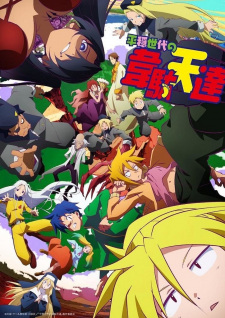
TV, 2021,
11 eps
Me:-
Author:-
The tone of the series is all over the place. While it initially seems like a lighthearted action-comedy, it quickly and rather jarringly jumps into heavy, disturbing topics such as rape, war crimes, and genocide. On top of this, the story is very absurdist and almost seems like a parody of overly complicated long runners but then proceeds to take itself seriously. This lack of focus almost certainly contributed to the anime's relative obscurity despite the effort put into it by MAPPA studio.
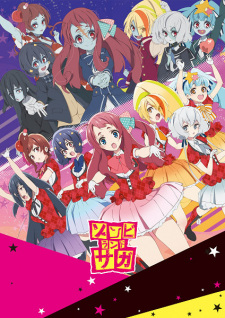
TV, 2018,
12 eps
Me:-
Author:-
The Genre Roulette aspects of the series make it unclear for some who the target audience is meant to be. In the first few episodes, there are plenty of moments that go fairly hard on the inherent Horror theme of zombies being gross, decayed corpses, yet an equal amount of moments frame the fact comedically; so the initial impression of ZLS was that it aimed to be horror-comedy. The showrunners also went deep into the Idol parody aspect, where the girls participated in a litany of musical genres including heavy metal and rap music with very comedy heavy episodes framing these events. But then that mostly disappears aside from various gags in future episodes. Said aspect is what initially drew in most viewers, but many were surprised to see the show start taking its role as an Idol anime more seriously as it went on. Of course, some still enjoy the show for its unique mix of all the above, but others believe that not sticking to one direction over the other weakens the experience.
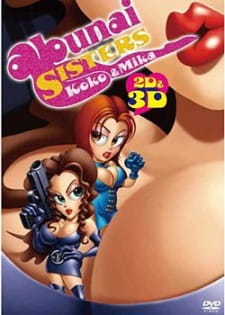
OVA, 2009,
10 eps
Me:-
Author:-
is a short-lived Celebrity Toon starring the Kano sisters, Mika and Kyoko. The series features simplistic slapstick comedy and juvenile plots, but also constant, gratuitous Male Gaze shots and attempts at Fanservice. This results in something that's too childish for adults, but too sexually charged for younger viewers.
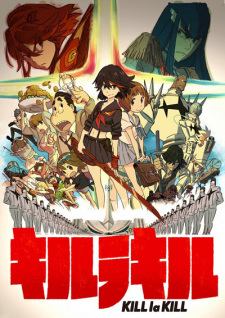
TV, 2013,
24 eps
Me:-
Author:-
is relentlessly dark, with main characters dying left and right, but at the same time there are heavy comedy elements that can seem very out of place, such as Lubbock's constant flirting and Tatsumi's Clueless Chick-Magnet tendencies, as well as lots of fanservice. Not helping is that the whole Gray-and-Gray Morality part of the story is more of an Informed Attribute, making it hard to tell if it's supposed to be for older audiences looking for a darker Shonen series, or a lighter-themed Shonen series for younger audiences. Older audiences found the humor distracting and felt the story didn't properly handle the darker elements it implied were important, while younger audiences found the show's themes a bit extreme and hard to get past, alongside the show's heavy amounts of violence and distracting fanservice. Due to this, neither the anime or manga maintained a large audience after the initial hype for the series, and both ended without much fanfare.
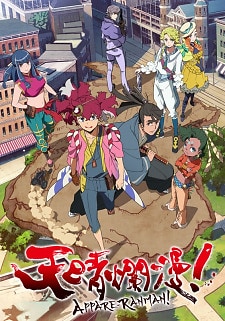
TV, 2020,
13 eps
Me:-
Author:-
was a flop with general audiences despite its good critical ratings—it revolves around a cross-country race in a Steampunk-inspired setting very loosely based on turn of the century America, but despite the over-the-top setting, characters, and action, the series also has multiple character arcs and backstories revolving around serious topics such as women's rights and the folly of revenge. Viewers who tuned in to see colorful, ridiculous action a la REDLINE found it hard to tolerate the angsty backstories and morals, and those who might have been interested in the characterization found it hard to take seriously because of the more out-there elements, and the series' sales suffered because of it.
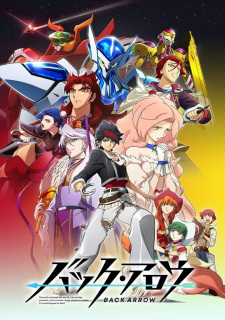
TV, 2021,
24 eps
Me:-
Author:-
was a notable flop despite the reputations of its creators, and most of it can be attributed to the creative styles of director Goro Taniguchi and writer Kazuki Nakashima clashing. While both creators make superficially similar anime (high-concept, flamboyant mecha works), the actual content of their stories can't be more different: Taniguchi uses his mecha as a front for geopolitical intrigue and weighty character-driven depictions of war, while Nakashima is a firm purveyor of old-school Super Robot Genre stories, where flashy, ridiculous action and pure idealism lead the way, and this anime attempts to do both styles at once to disastrous results. There's classic Super Robot Genre tropes like robots that run on pure willpower, Combining Mecha, New Powers as the Plot Demands, Bloodless Carnage invocations of The Power of Love and The Power of Friendship, and stuff that's just plain goofynote out the wazoo, but this is combined with dark and serious elements such as a weighty War Is Hell storyline, the protagonist and his Ragtag Bunch of Misfits rubbing elbows with generals and princesses and eventually becoming a great power nation themselves, and the protagonist's Superpowered Evil Side killing hundreds. These events constantly occur back-to-back at the same time, leading to a tone so schizophrenic it can almost seem like you're watching two shows at once, such as when a battle filled with angst from the heroes about having to possibly kill is ended by a literal friendship powerup where Everyone Lives, only to immediately be followed by a riot stirred up by the Big Bad that ends in a civilian massacre. It's not a surprise that the show never did great numbers, since it requires tolerance of both the most extreme seriousness of a Real Robot Genre anime and the most ridiculous silliness of a Super Robot Genre one, something that few fans have the ability to do.
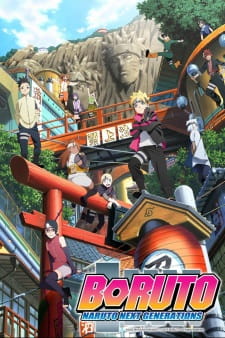
TV, 2017,
293 eps
Me:-
Author:-
An often discussed reason Boruto took a while to really gain an audience was that the early part of the story lacked a hook for newcomers or long-time series fans. For long-time fans of Naruto, it's a story focusing on the children of the characters from the original manga, said parents being characters fans have followed for nearly two decades and therefore like more than their kids. They also find the concept of a story that is supposed to be set after the long history of war was seemingly ended to be a Happy Ending Override. It also didn't help that the main antagonists were members of the clan of Kaguya Otsutsuki, a character infamous for hijacking the story previously, making Naruto fans very concerned that an element they disliked was getting attention. Non-Naruto fans had no desire to watch it, simply because it's a continuation of a long-running series with a certain level of infamy among the anime community for Filler, and thus lack any emotional connection to it that might have hooked them in. This isn't helped by the fact that newer fans simply won't know much about Naruto if they haven't seen the original series, as Boruto doesn't do much to inform newcomers on the setting. While the series eventually gained a bigger audience, the initial lack of a compelling reason to look into the series caused it to not take off at first with any particular audience.

TV, 2007,
51 eps
Me:-
Author:-
has a young female protagonist, adorable fairy mascots, and sparkly Magical Girl battles, since the manga ran in Nakayoshi, a shoujo magazine for young girls. It also deals with some surprisingly dark and mature subjects (including one character having a Big Brother Attraction), many characters have deep psychological issues, and a huge part of the story is the elementary school-aged heroine's romance with a boy in his late teens (who openly returns her affections). There's also lots of moe elements in order to appeal to otaku. This may be why no licensing company wants to pick the anime version up.
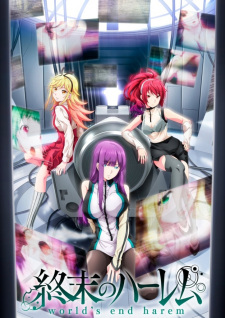
TV, 2022,
11 eps
Me:-
Author:-
One of the more common reader/viewer complaints with the original World's End Harem is the Uncertain Audience: it essentially tried to be both a raunchy borderline-hentai sex comedy and a serious dystopian science fiction story at the same time, and accomplished this by using two different main characters with mostly unrelated storylines (at least until until they finally merged in a Halfway Plot Switch). The result was that the "Truman Show" Plot centered on Shota Doi arguably distracted from the main Myth Arc with Reito Mizuhara, although who distracted from whom is a matter of opinion. The Dark Fantasy Spin-Off World's End Harem: Fantasia is much more focused and incorporates (even heavier) ecchi content into a single main character's Myth Arc, serving as an example of why sometimes Harem Genre Tropes Are Not Bad.
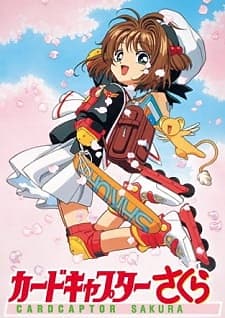
TV, 1998,
70 eps
Me:-
Author:-
can't seem to decide whether it's intended for kids who are new to the series or adults who grew up watching and reading the original run. On one hand, it is still serialized in the very same Shōjo magazine as the original run, and the anime adaptation aired in a kids timeslot, but on the other hand, since it's a direct continuation, it requires familiarity with a work that's over 20 years old, and all of The Merch are things like collector-grade figures and replicas, as well as expensive cosmetics and clothing, with very few things kids could afford or would be interested in.
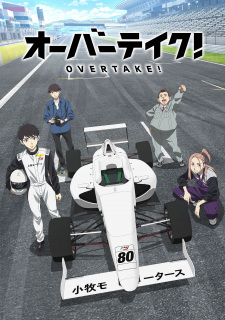
TV, 2023,
12 eps
Me:-
Author:-
is sold as a anime focusing on auto racing to draw in fans of sports series who are there for the intense competition and rivalries—but despite containing a lot of Info Dumping about racing, the show itself is quite light on the racing action, with most of the races being glossed over or reduced to one or two important moments. Instead, the series is heavy on character-focused drama, turning off sports anime fans and racing fans by the bait-and-switch, as they'd rather watch racing, not teenagers angsting over their personal issues, and they may be asking why a series that's ostensibly about car racing is instead focusing on a photographer's personal trauma. However, viewers who might be interested in a drama aren't likely to tune in due to the sporting aspect of the series, which is advertised to be more important than it really is. While the series may be aimed at viewers of series like F 1 Drive To Survive which are also more about the personal drama between race car drivers than they are about the racing itself, the anime muddies those waters by focusing on Japanese F4, which is a very low-tier feeder series often compared to hobby racing. DTS viewers would rather focus on the glitz and glamor of Formula 1, not a bunch of fictional teenagers in the racing equivalent to single-A baseball.
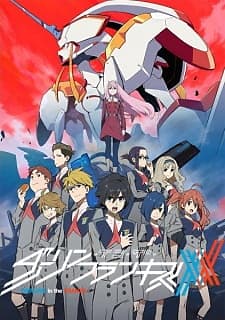
TV, 2018,
24 eps
Me:-
Author:-
Much of the reason DARLING in the FRANXX is a fairly controversial show—it's often described as the fusion of Neon Genesis Evangelion and Gurren Lagann, as it absolutely borrows stylistic cues from both. Consequently, it has a high-concept, sexualized, inherently silly premise of robots with pilots sitting at the controls in doggystyle, but the series itself, for most of its run, is relatively slow-paced and serious, focusing on interpersonal drama, love triangles, and tragic backstories. A lot of people interested in bawdy, farcically over-the-top action were wondering when the show would stop focusing on sad teenagers, and found the show's conflict hard to get hyped about. Meanwhile, the people who liked the show's character focus and drama were either unable to get past the premise, or were driven off by later episodes bringing the silly stuff to the fore—culminating in a lady the size of the planet fighting space aliens.
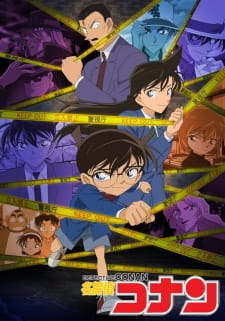
TV, 1996,
? eps
Me:-
Author:-
failed when it was broadcast on late nights on [adult swim] in the United States because of this uncertainty, combined with Values Dissonance: it was too childish for [adult swim], yet too violent for CN's then late-afternoon Toonami block, having brutal murders and complex plots involving suicide, drugs and business dealings, but also many childish comedy moments.
